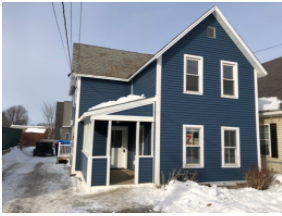A community land trust provides access to affordable home ownership by allowing for shared ownership of a home. In most arrangements, the land trust retains ownership of the land that homes are developed on. The homes are then typically bought and sold at market rate prices. This keeps costs lower for prospective buyers and provides a structure for keeping costs low over time.
For the land trust model to work, some form of subsidy must be available. This could include donations of land from private individuals and institutions or excess public lands (e.g., unused land owned by a school district). Land trusts are often formed opportunistically in response to increases in real estate prices and other development pressures that threaten affordability for low- and moderate-income residents.
Other forms of shared-equity homeownership include deed-restricted homes and limited equity cooperatives. Deed-restricted homes may arise through the development of mixed-income housing (where a portion of units are reserved for low-income residents) or through other processes, and typically require that any sale of the property be to individuals or families within certain income brackets. Limited-equity cooperatives act as a corporation that holds all deeds to housing units within the cooperative, with residents acting as shareholders to the corporation, members of the cooperative, and leaseholders to their home. Through this arrangement, residents can build equity in their home without purchasing it outright, and long-term affordability is preserved through the cooperative arrangement.
A benefit of land trusts and other shared-equity models are that they provide a path to homeownership, allowing homeowners to build equity that supports upward economic mobility.
Case Study: Champlain Housing Trust
The Champlain Housing Trust operates a variety of housing programs in the greater Burlington, VT area, including several housing cooperatives and a shared-equity program that covers a 20-30% down payment on a home for individuals and families with qualifying incomes.


